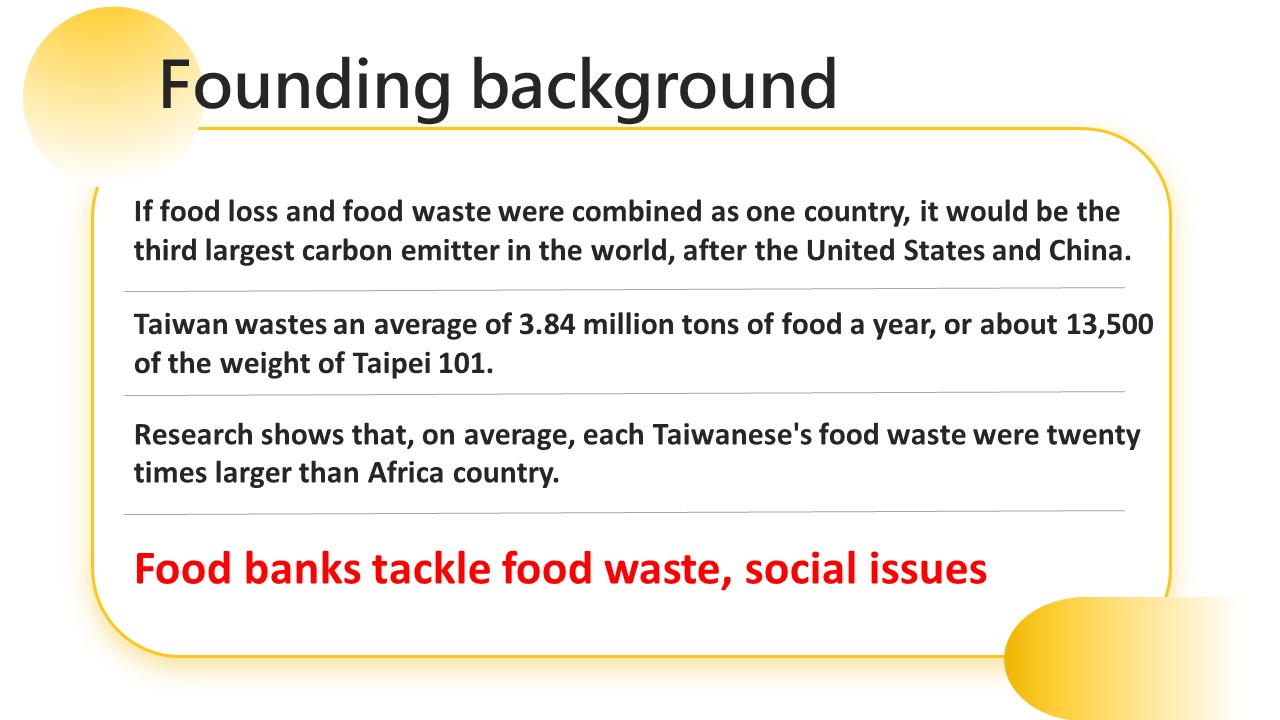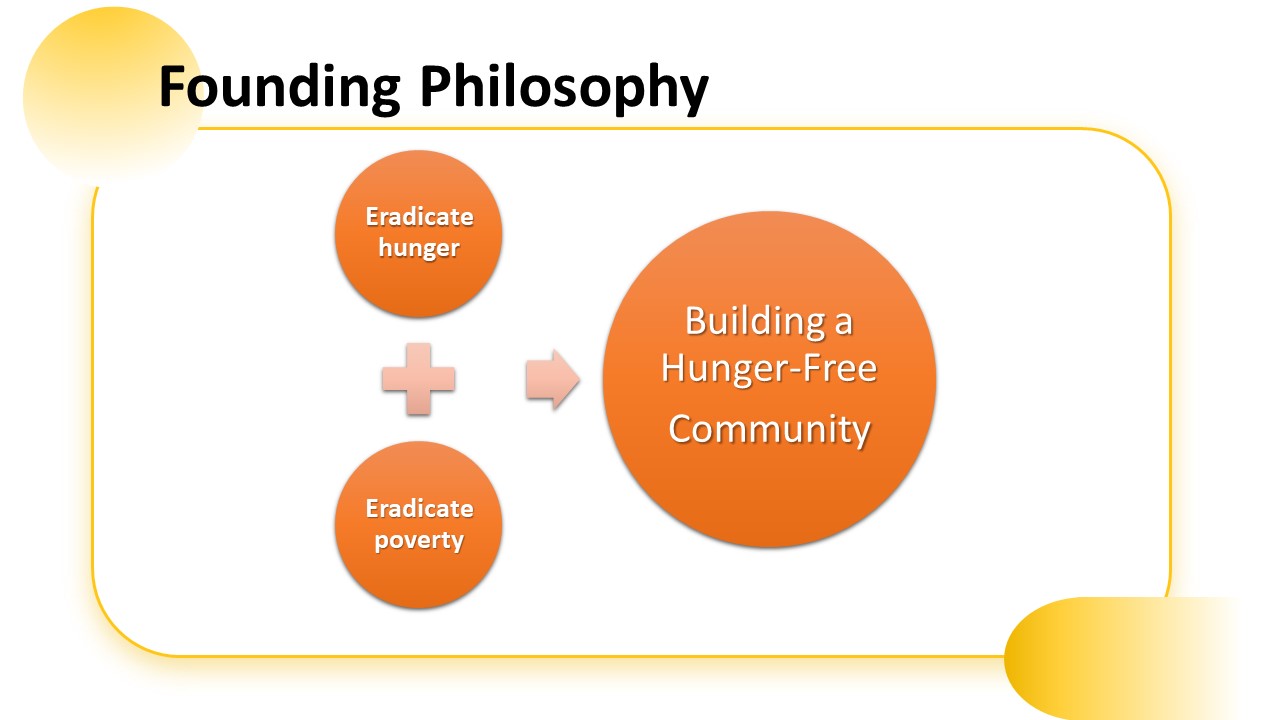
Introduction

Origin

Definitions

Operating concepts

Introduction

Origin

Definitions

Operating concepts
While browsing the internet news, we came across a report about food waste, which said: "If food loss and food waste were combined as one country, it would be the third largest carbon emitter in the world, after the United States and China." We were really surprised by this statement, as we had the impression that food waste is a chronic problem, but never thought it could be this serious. The report prompted us to learn more about food waste, finding that one person dies of hunger every 48 seconds in the Horn of Africa, about 8 million people (nearly half the population) are in hunger crisis and one third of the children face chronic malnutrition in Somalia, and Taiwan wastes an average of 3.84 million tons of food a year, or about 13,500 of the weight of Taipei 101.


While browsing the internet news, we came across a report about food waste, which said: "If food loss and food waste were combined as one country, it would be the third largest carbon emitter in the world, after the United States and China." We were really surprised by this statement, as we had the impression that food waste is a chronic problem, but never thought it could be this serious. The report prompted us to learn more about food waste, finding that one person dies of hunger every 48 seconds in the Horn of Africa, about 8 million people (nearly half the population) are in hunger crisis and one third of the children face chronic malnutrition in Somalia, and Taiwan wastes an average of 3.84 million tons of food a year, or about 13,500 of the weight of Taipei 101.


St. Mary's Food Bank, the world's first food bank, was founded by an American John van Hengel in Phoenix, Arizona in 1967. The initial idea was to advocate for businesses, stores, and people to donate food and then distribute it to those in need instead of buying it with money. In France, where an average of 7 million tons of food is wasted each year, legislation was passed in May 2015 to address this problem, making France the first country to legislate a ban on food waste in hypermarkets, with mandatory food donations to charity if the food is not sold. Violators face fines of up to EUR 75,000. The legislation, which came into force in 2016, has made a significant contribution to reducing food waste and promoting food recycling, and has since led to subsequent legislation in countries such as Italy and Spain.

A food bank is a non-profit organization that collects food and supplies from the public to provide emergency and short-term meals and necessities to the recipients. Generally, food banks do not distribute food and supplies directly, but work with corporations, governments and private sector for delivering the resources by the volunteers in the institutions. Some civil organizations also offer services that allow people in need to go directly to the stores to pick up supplies.
World Food Day:October 16th The 20th United Nations General Assembly designated October 16th as World Food Day, which was implemented in 1981.
Reasons for establishment: The Food and Agriculture Organization of the United Nations was established on October 16, 1945. In 1972, due to two consecutive years of abnormal weather, food harvests around the world were poor, and the Soviet Union at that time was rushing to buy grains, resulting in a worldwide food crisis. crisis.
The Food and Agriculture Organization of the United Nations held the first and second food conferences in 1973 and 1974 to call on the world (especially the third world) to pay attention to food and agricultural production issues. However, the problem has not been resolved since then, and the food problem is still getting worse.

The establishment of World Food Day is to promote people's attention to the production of food, so the Food and Agriculture Organization of the United Nations and developing countries jointly develop economic and technical cooperation, enhance public understanding of world hunger, and promote the transfer of food from developed countries to developing countries. Technology and other methods, and require governments around the world to hold various and lively celebrations on October 16 every year to enhance public awareness of food issues.
Food banks provide surplus yet edible food to people or groups in need through public donations to solve urgent but short-lived food problems. Food banks' goal of implementing this program is to encourage the recipients to become self-reliant. And they also hope to reduce food waste, to solve the social problem of food crisis and to realize effective distribution and utilization of resources to achieve social stability.
